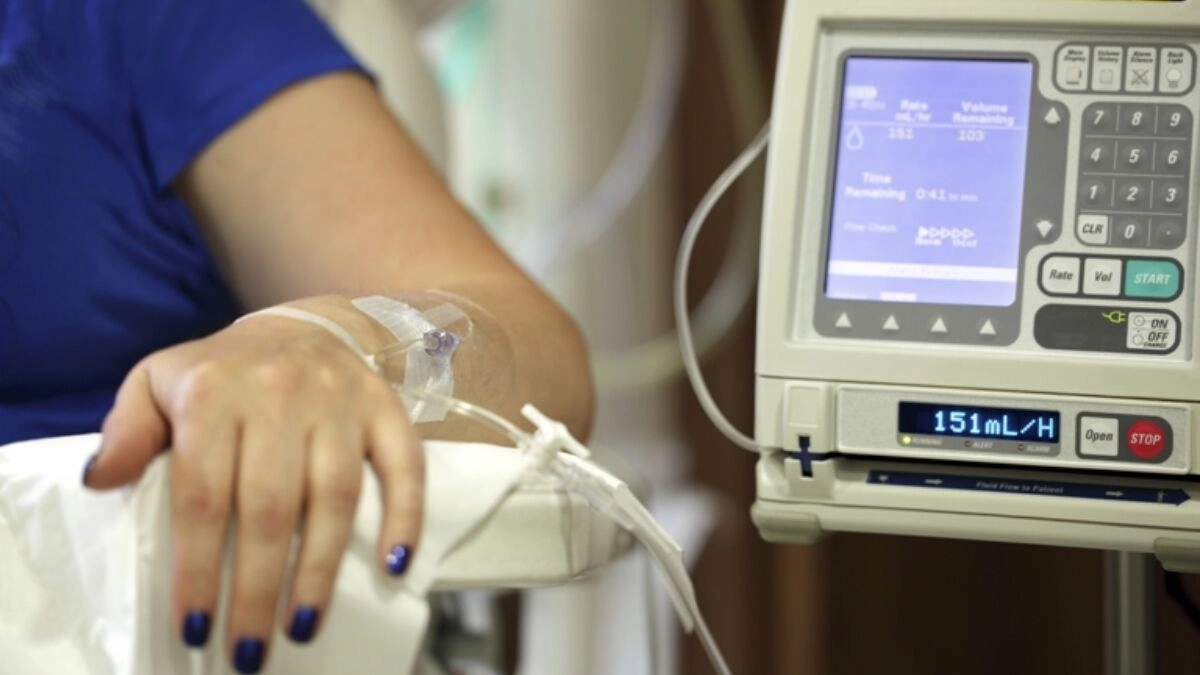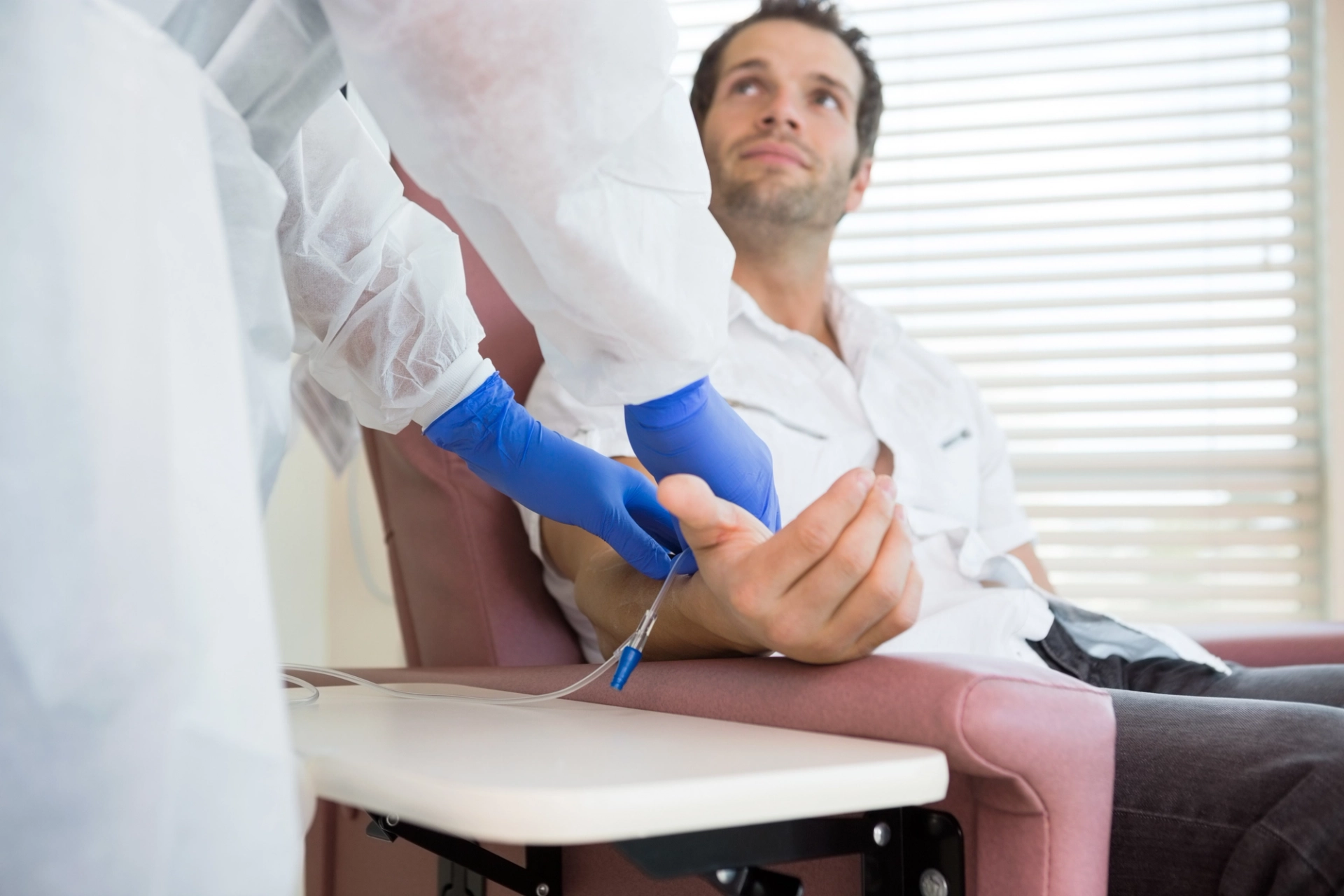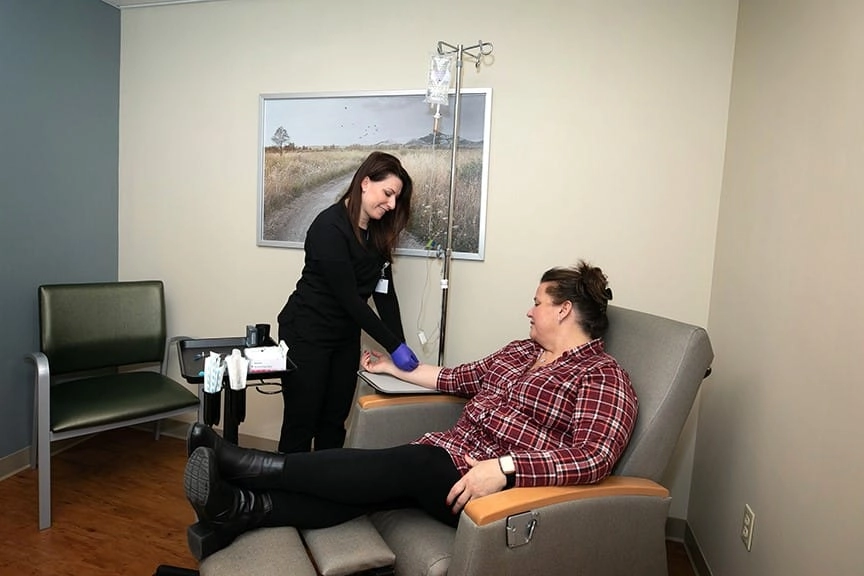Ulcerative colitis Infusion Therapy
Ulcerative colitis (UC) is a chronic inflammatory bowel disease that affects the large intestine. It causes inflammation and ulcers in the colon and rectum, leading to symptoms like diarrhea, abdominal pain, and rectal bleeding. UC is a long-term condition with periods of active symptoms (flares) and remission. It can significantly impact quality of life and may increase the risk of colon cancer. The exact cause is unknown, but it's believed to involve an abnormal immune response. UC typically requires ongoing medical management and sometimes surgery. With proper treatment, many people with UC can control their symptoms and lead normal lives.

Symptoms

Symptoms
Common symptoms of Ulcerative Colitis (UC) include:
- Diarrhea, often with blood or pus
- Abdominal pain and cramping
- Rectal pain and bleeding
- Urgency to defecate
- Inability to defecate despite urgency
- Weight loss
- Fatigue
- Fever
- Reduced appetite
- Anemia
- Less common symptoms may include:
- Joint pain or swelling
- Eye irritation
- Skin problems
- Mouth sores
- Nausea and vomiting
Symptoms can range from mild to severe and may vary over time. The disease can also affect growth and development in children. If you experience persistent digestive symptoms, especially bloody diarrhea, it's important to consult a healthcare professional for proper diagnosis and treatment.

Treatment Options
Treatment options for Ulcerative Colitis include:
- Medications:
- Anti-inflammatory drugs (e.g., 5-aminosalicylates, corticosteroids)
- Immunosuppressants (e.g., azathioprine, mercaptopurine)
- Biologics (e.g., infliximab, adalimumab)
- JAK inhibitors (e.g., tofacitinib)
- Surgery:
- Colectomy (removal of the colon)
- J-pouch surgery
- Dietary changes:
- Identifying and avoiding trigger foods
- Following a low-residue diet during flares
- Probiotics:
- To support gut health
- Stress management:
- Relaxation techniques
- Cognitive behavioral therapy
- Nutritional supplements:
- Iron, calcium, vitamin D
- Symptom management:
- Anti-diarrheal medications
- Pain relievers
- Alternative therapies:
- Acupuncture
- Herbal supplements (under medical supervision)
Treatment plans are typically personalized based on the severity of the disease, location of inflammation, and individual patient factors. The goal is to induce and maintain remission, heal the colon, and improve quality of life.

Living With
Living with Ulcerative Colitis means adapting to a chronic condition that affects daily life. Patients need to take medications regularly and attend frequent doctor visits. Managing diet is crucial, often requiring careful food choices to avoid triggering symptoms. Stress management techniques like meditation or yoga can help reduce flare-ups. During active periods, symptoms may disrupt work, social activities, and sleep. Many people with UC find support groups helpful for coping emotionally. Exercise, when approved by doctors, can improve overall health and mood. It's important to communicate openly with healthcare providers about any changes in symptoms. While UC can be challenging, advances in treatment allow many patients to achieve long periods of remission and maintain a good quality of life.
Meet our Infusion Specialists
Jalal Thwainey M.D.
Medical Director
Emilie Wojcik, N.P.
Director of Clinical Services
For Provider
Simplify patient referrals and offer advanced treatment options with our infusion partnership program.
For Patient
There may be a better way to manage your condition – explore infusion therapy.





